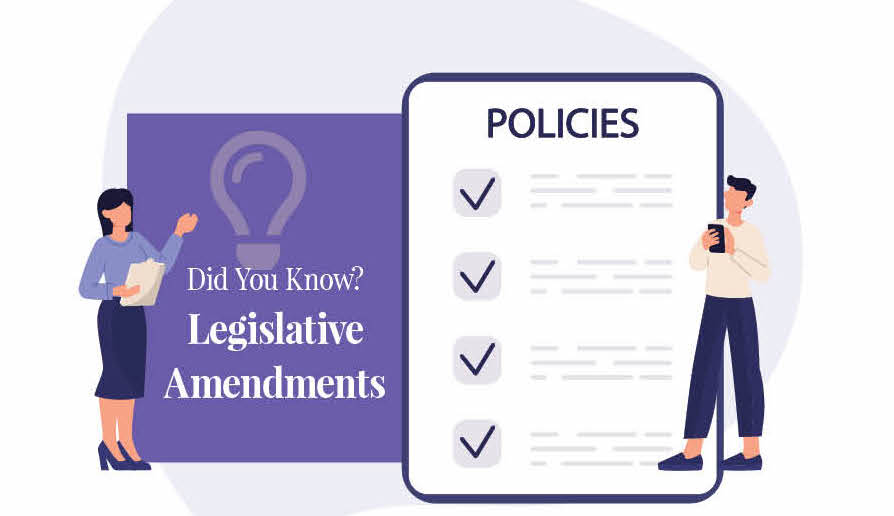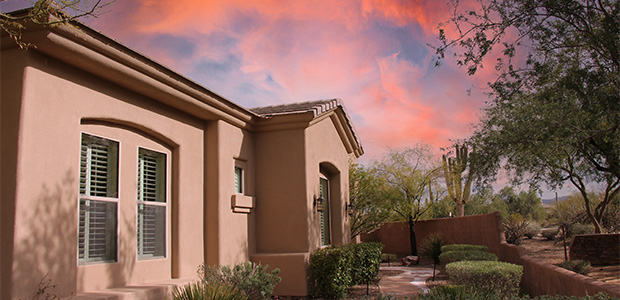There have been some legislative amendments passed recently that affect planned communities and condominiums regarding political signs, member assembly in common areas, flags, artificial turf, and short-term rentals? The changes to the Arizona Revised Statutes (A.R.S.) became law on September 24, 2022. Below is a summary of these changes in the law and how they affect the members of Desert Ridge.
Political Signs
In addition to the already established laws regarding the definition and display of political signs, members can now display “association specific political signs” that support or oppose:
1. A candidate for the board of directors
2. Recall of a board member
3. A community ballot measure that requires a vote of the members (i.e., special assessment, amendment to declaration or bylaws, etc.)
Associations can adopt reasonable rules regarding the signs, but shall not do any of the following:
1. Prohibit the display of the signs between the date the association provides the ballots and 3 days after the election.
2. Limit the number of signs, but total dimensions cannot exceed 9 square feet.
3. Require commercially produced signs or prohibit use of both sides of the signs.
4. Regulate the number of candidates or directors to be recalled or number of ballot measures supported or opposed.
5. Make any other regulations regarding content, except associations may prohibit profanity, discriminatory text, images of content based on race, religion, sex, familial status, or national origin, as prescribed by state and federal fair housing laws.
Member Assembly in Association Common Areas
Associations cannot prohibit or unreasonably restrict members from peacefully assembling and using the common area subject to reasonable restrictions adopted by the board. A member or group of members can assemble to discuss:
1. Any matters related to the association o Board elections and recalls
2. Potential or actual ballot issues, included governing document amendments
3. Property maintenance or safety issues
Additionally, a member may invite one political candidate or non-member guest to speak to the assembly about association issues. The association cannot prohibit members from posting notices of assemblies on common area bulletin boards. Please note that an assembly of members is not an official meeting unless convened with proper notice pursuant to Arizona law and the association’s governing documents.
First Responder Flags
The types of flags that associations cannot prohibit from being displayed has been amended to include specified first responder flag, which is defined as a flag that recognizes and honors the services of Law Enforcement, Fire Department, Paramedics or Emergency Medical Technicians
Artificial Turf
One of the additions to the A.R.S that has received the most publicity and in turn been the most misconstrued is the newly added A.R.S. §33-1819. Although this addition establishes limits associations can impose for the restriction of artificial turf installation, associations may do all the following:
1. Adopt reasonable rules regarding the installation and appearance if they do not prevent installation in the same manner as natural grass. Includes location, percentage of coverage and quality.
2. Require removal if causes an uncorrected health or safety hazard.
3. Require replacement or removal if not maintained pursuant to an association’s standards.
4. Prohibit installation in area an association is required to maintain or irrigate.
5. Prohibit installation when natural grass is prohibited.
This does not change anything for Desert Ridge as we already have specific rules regarding the installation of natural grass and the conversion of duly approved and existing grass to artificial turf.
Short-Term Rentals
While the new restrictions regarding short-term rentals do not immediately affect planned communities and condominiums, it does affect all homeowners and is worth addressing.
1. The new amendments are adding to the authorizations for a city, town, or county to regulate a vacation or short-term rental, including a permit or license, notifications, and liability insurance.
2. They also cap the civil penalties imposed for a verified violation.
3. A local government may require the vacation rental owner, before offering the vacation or short-term rental for the first time, to notify all single-family residential properties adjacent to, diagonally across the street from the vacation rental, or all residents on the same building floor in a multi-family residential building of the following:
(i.) The permit or license number for the property.
(ii.) The address and emergency point of contact information for the owner or owner’s designee who is responsible for responding to complaints or emergencies in person if required by public safety personnel, over the phone or by email, at any time of day.
4. Additionally, the local governments are authorized to impose the penalties for violations of the statutes, including imposing fines of up to $1,000.00 every 30 days the information above is not provided and impose penalties and suspend the operator’s license for up to 12 months for violations.









